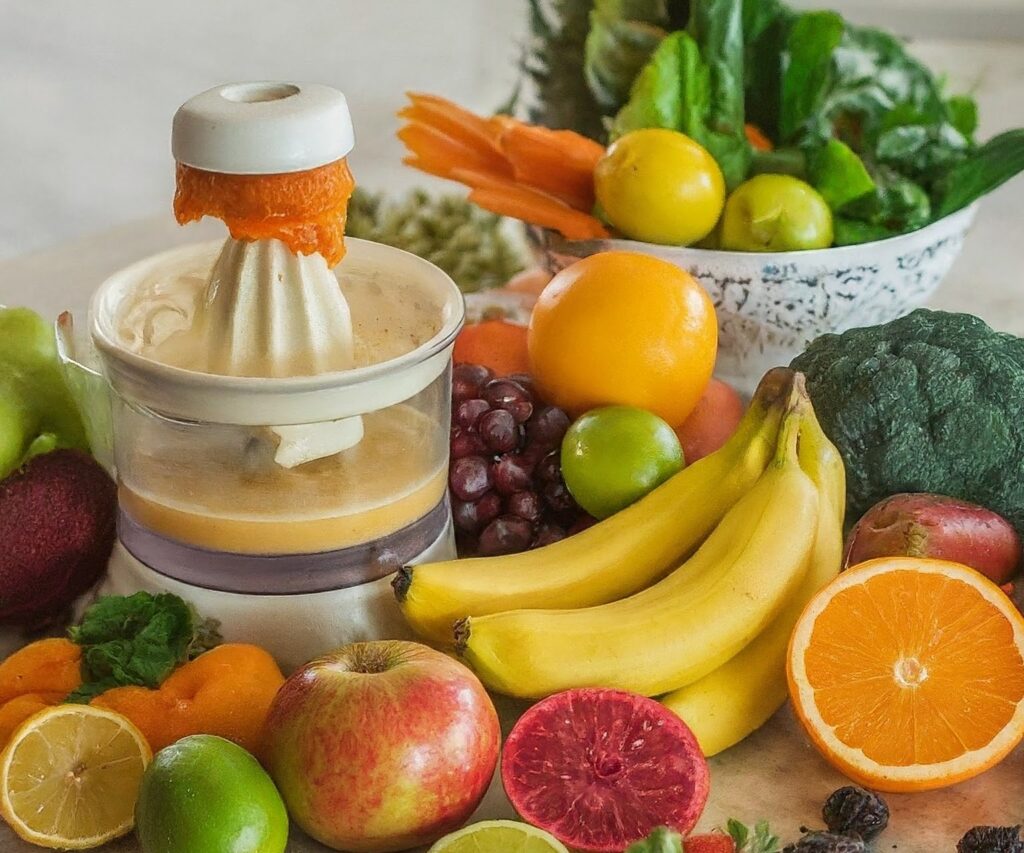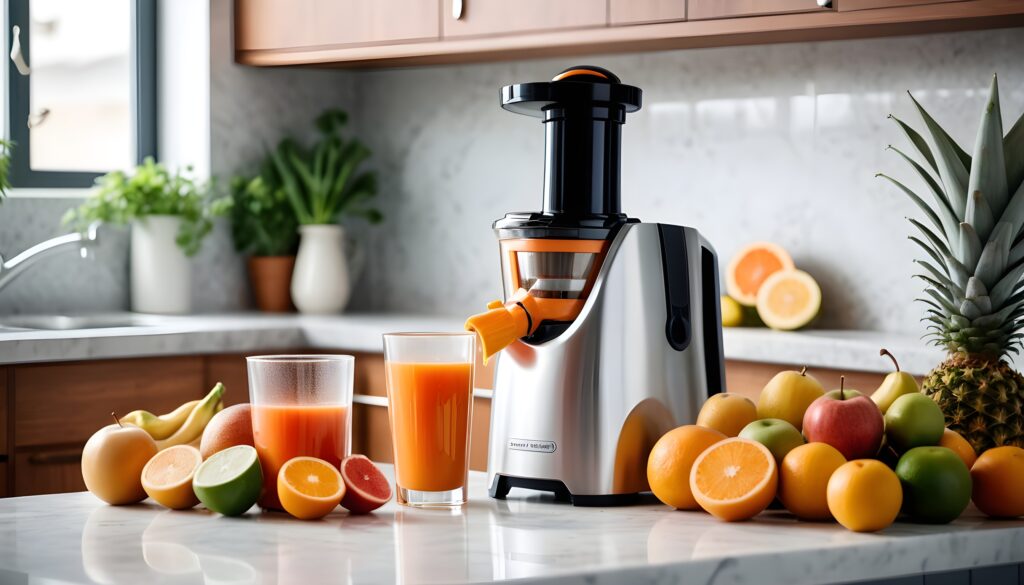In today’s fast-paced world, convenience is king. This extends to our health as well, where many people are looking for easy ways to incorporate fresh fruits and vegetables into their diet. It will enter the handheld juicer, a compact and versatile kitchen tool that allows you to whip up a glass of nutritious juice in minutes, without the need for bulky electric appliances.
What is a Handheld Juicer?
A handheld juicer, as the name suggests, is a manual juicing device that you operate by hand. Unlike electric juicers that rely on motors to extract juice, handheld juicers use leverage or pressing mechanisms to squeeze the juice out of fruits and vegetables.
Types of Handheld Juicers
There are several types of handheld juicers available, each with its own advantages and limitations. Here is a fast breakdown of the most well-known ones:
- Citrus Squeezers: These are the simplest and most affordable handheld juicers. Designed specifically for citrus fruits like lemons, limes, oranges, and grapefruits, they typically have a bowl-shaped cavity with ridges that effectively extract juice.
- Manual Juicers: These versatile handheld juicers come in various designs, but they all share the principle of using a cone-shaped reamer to press juice out of fruits and vegetables. Some models have a lever mechanism for added leverage, making it easier to extract juice from harder fruits.
- Hand Crank Juicers: These handheld juicers use a hand crank to operate a set of gears that press down on fruits and vegetables. This provides more leverage compared to manual juicers, making them ideal for juicing tougher fruits and vegetables like leafy greens.
Benefits of Using a Handheld Juicer
- Portable and Compact: A handheld juicer’s biggest advantage is its portability and compact size. However electric juicers that require counter space and electrical outlets, handheld juicers can be easily stored in a drawer or cabinet. And taken with you on picnics, camping trips, or even to the gym.
- Affordable: Handheld juicers are significantly cheaper than electric juicers, but making them a budget-friendly option. And for those who want to enjoy the benefits of fresh juice without breaking the bank.
- Easy to Clean: With minimal parts, handheld juicers are a breeze to clean. Most are dishwasher-safe, or you can simply rinse them with warm water and soap.
- Calm Activity: Not any more awakening the entire house toward the beginning of the day. Handheld juicers operate silently, allowing you to enjoy a glass of fresh juice without any noise disturbance.
- More Control: Handheld juicers give you more control over the juicing process. You can adjust the amount of pressure applied to extract more or less pulp from your juice.
Things to Consider When Choosing a Handheld Juicer
- What will you be juicing? If you plan on juicing mostly citrus fruits, a citrus squeezer is a perfect choice. For a wider variety of fruits and vegetables, a manual juicer or a hand crank juicer might be a better option.
- Ease of Use: Consider how much effort you’re willing to put into juicing. So citrus squeezers and manual juicers require some arm strength, while hand crank juicers offer more leverage.
- Material: Handheld juicers are typically made from plastic, aluminum, or stainless steel. And Stainless steel is the most durable and easiest to clean, but also the most expensive.
- Size: Think about where you’ll be storing your handheld juicer and choose a size that fits comfortably in your kitchen.
Conclusion
A handheld juicer is a fantastic option for anyone who wants to enjoy the health benefits of fresh juice without the hassle of electric appliances. However with their portability, affordability, and ease of use, handheld juicers make it easy to incorporate fresh juices into your daily routine, no matter where you are. Therefore, ditch the store-bought juices and embrace the fresh, delicious taste of homemade juice with the help of your trusty handheld juicer!


